By Jillian Crane
Originally Published in The Chief.
It’s not easy growing up in today’s America. The pressure on children to excel academically has never been greater; social media is proving to be more isolating than binding; single parent households abound, and ubiquitous political infighting is leaving kids confused, dispirited and disillusioned.
But for at least one subset of U.S. children — the children of more than five million first responders — today’s mental wellness challenges are especially daunting. These young Americans need our support now more than ever.
Children of first responders, including police officers, firefighters, emergency medical technicians and 911 operators face a unique set of struggles related to their parents’ work:
• Fear and worry: Children of first responders constantly worry about their parent’s safety and the risks associated with their job.
• Separation anxiety: First responders often have unpredictable schedules that can include long shifts, overnights, and unexpected emergencies. This can make it difficult for children to spend time with their parent and can cause feelings of anxiety and insecurity.
• Trauma exposure: Children of first responders may be exposed to traumatic events through their parent’s work. They may hear about or witness accidents, injuries, and other traumatic incidents, which can have a lasting impact on their mental health and well-being.
• Social isolation: First responders often have limited time to participate in social activities or attend events with their families, which can cause children to feel isolated or left out.
• Stigma and discrimination: Children of first responders face stigma and discrimination from others who do not understand the challenges and sacrifices associated with their parent’s job. This can lead to feelings of isolation and a sense of not belonging.
This last point is worth unpacking further. If we were to ask Americans, Churchill style, to identify the Finest Hour of U.S. first responders, most would immediately respond 2020 and 2021, when the onset of Covid virtually shut the nation down.
As millions of us were battened down in our homes, first responders were seemingly everywhere — bringing highly contagious patients to hospitals; moving food supplies and personal protective equipment to underserved areas; tragically facilitating the remains of more than one million Americans who succumbed to the virus; and generally keeping order at a time of tremendous national anxiety.
Think what their children were going through when their parents were in the field. They were certainly proud of their heroism, but how many kids wondered alone in bed each night whether mom or dad, or they, themselves, would be the next victim of the virus? Some first responders lived in basements or attics throughout to avoid contact with loved ones. What does that do to a child in the short and long term?
Those years also included tremendous social upheaval, spurred by the terrible death of George Floyd in Minneapolis. In an instant, police officers across America, the overwhelming number of which do their jobs professionally, were branded as bad guys. We know the impact that had on cops and other first responders — thousands have retired early — but what did it do to their kids? What have they had to endure from their classmates and peers?
An important national conversation about the mental wellness of young people is ongoing, but we’d be wise to pay special attention to this important and vulnerable population. Our country will always need a proud and robust first responder community, and very often these jobs are filled intergenerationally.
Fortunately, a number of U.S. philanthropists and corporations are recognizing the importance of first responder families to the nation. They are allowing organizations, including First Responders Children’s Foundation, which I lead, to reach out to this young population with bereavement grants, scholarships and mental wellness counseling, but we’re just scratching the surface.
More needs to be done to help this precious American community, just as it helps us, every day of the year.



